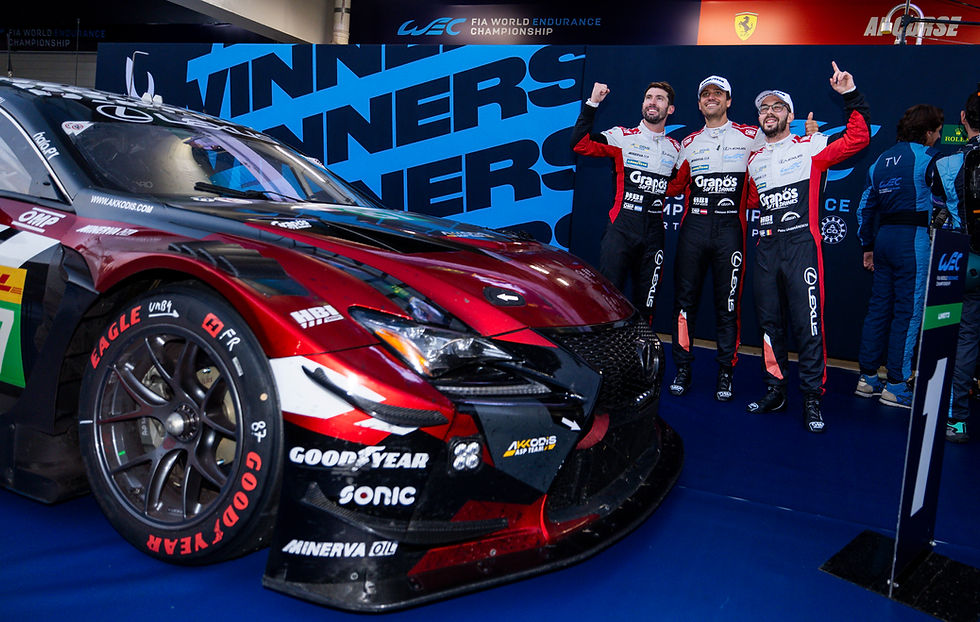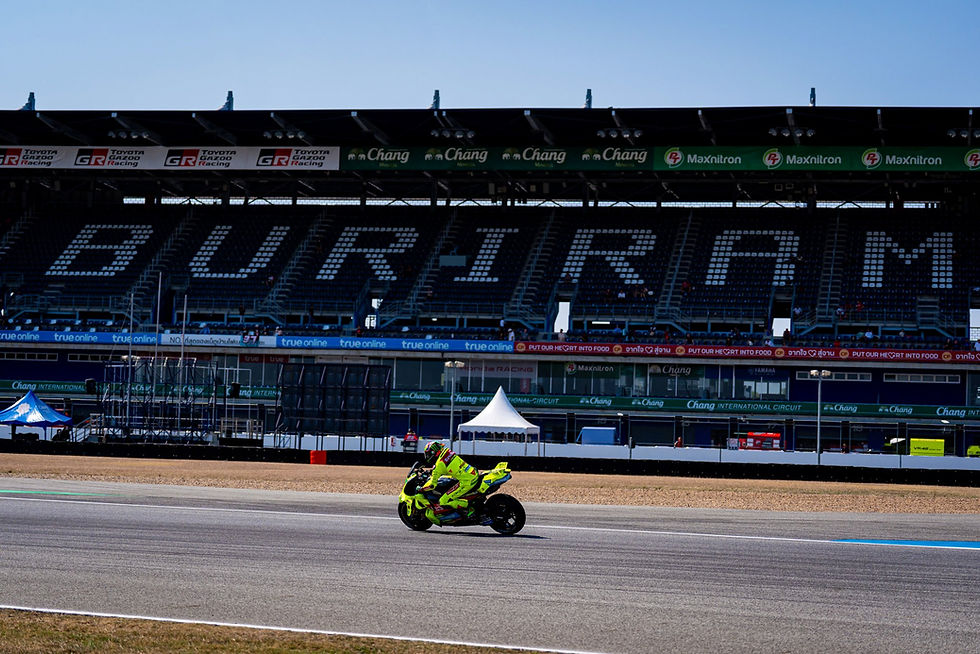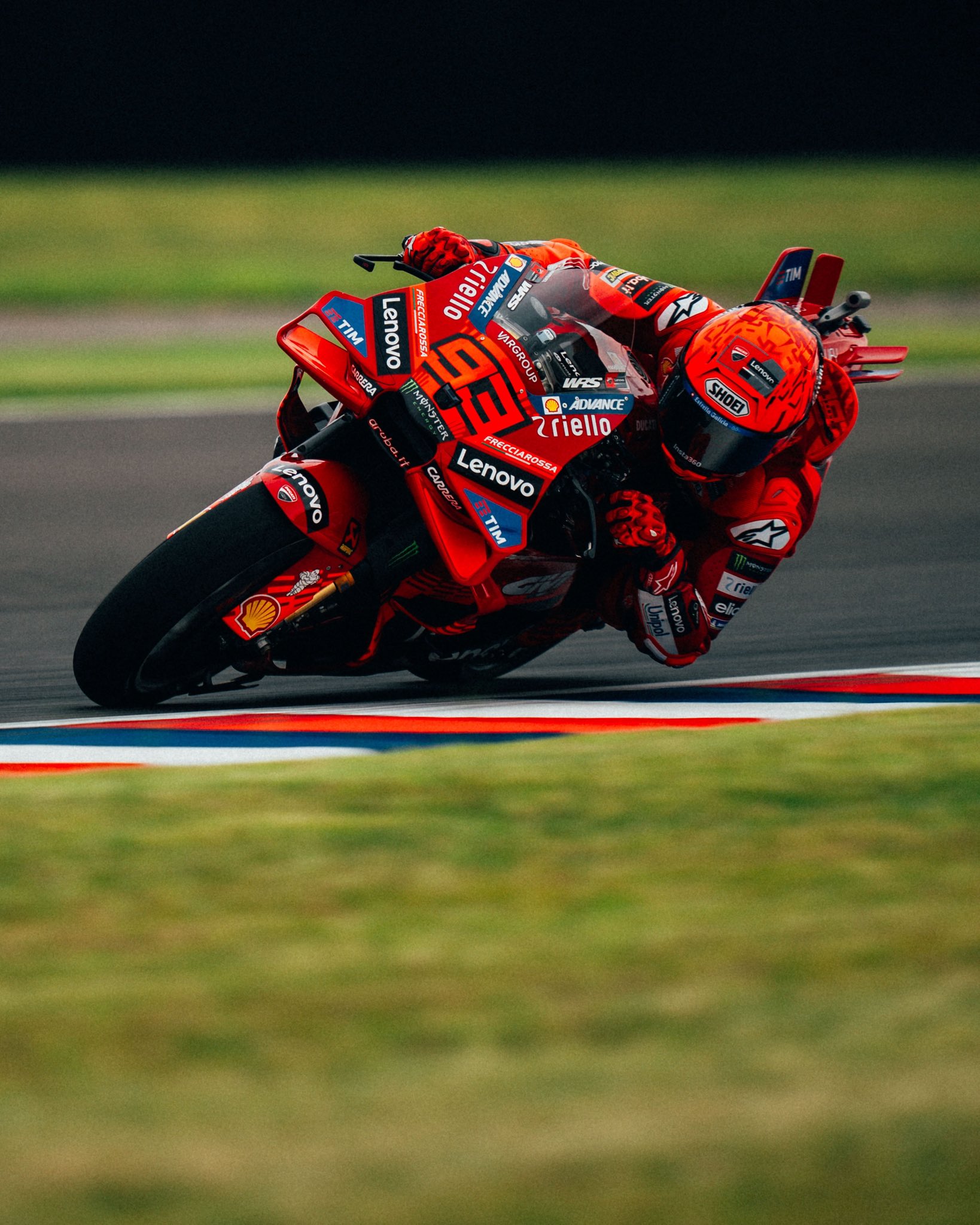FEATURED: Interview with Touring Car Legend Andy Priaulx MBE
- Scar Stewart

- Mar 19, 2021
- 10 min read
Updated: Jan 12, 2025
Interviewed by Sam Stewart , Recorded by Bruna Brito, Edited by Aiden Hover
I’d like to begin by asking about your entry to the sport, how did you get into motorsport originally?
I’m actually the third generation [of Priaulx] to be a racing driver. My Father was racing, I used to help him and he was always introducing me to racing and motorsports, in fact, I sat on my first motorbike at 2 or 3 years old! I was then karting at 8 years old and doing motocross and all sorts, so I had a really amazing upbringing of just engines and racing, which turned serious in my late teens, when I moved over from motorsport in Guernsey and the Channel Islands, to more professional and offshore racing, and well here we are today after having a 20-year professional career
After an early career in hill climb racing you made a transition into open-wheel [circuit] racing, how did that transition go for you?
Yeah I started in hill climb, and in 1995 I won the British Hill Climb Championship, and at that moment it was rather unusual to see a young guy like me to be doing hill climbing. I was driving a Formula One engined, very powerful car and I won the British championship with a clean sweep. I had guys like Jackie Stewart watching me, he came down to watch me, and really I was given my break at that moment to really develop a single-seater career in circuit racing and I made the jump from hill climb at the age of 20 with the help of guys like Jackie Stewart and some great sponsors, and I’ve now had a great career I’ve tested in everything like sportscars, touring cars, Formula One cars, and I’ve driven pretty much anything over the years.
You mentioned your test in Formula One, how different was that to the other cars you were racing at the time?
I was racing in touring cars, so it was very different, but before I became a full-time, paid professional, I actually had a really successful single-seater career. I replaced Jenson Button in Formula 3 when he moved into Formula One and I got the drive with Renault and I was winning races at a very high level, against actual Formula One Drivers that are currently still there today some of them, so I was already perceived as one of the young up and coming, Formula One potential drivers of that time. To get a chance after not making it into Formula One, for a number of reasons – mostly financial and timing – I then got the chance of being able to test in Formula One having won the World Championship in touring cars. It was a very successful test, and from then on they signed me to become the test driver for Williams, and then for BMW, and then occasionally I was the reserve Formula One driver as well at some of the Grand Prix.
You were talking about your very successful touring car career, and you did have a very successful debut in British Touring Car, would you like to talk a bit about how that panned out?
Yeah absolutely, so at that moment I was in Formula 3 and I was struggling really financially I was already in my mid to late twenties, and I got a one-off chance to join a very successful touring car team called Vauxhall Triple Eight, and I actually drove in a one-off guest race filling in for a suspended driver, Phil Bennett. I was with really strong teammates. I was with a guy called James Thompson and Yvan Muller who were both proven winners of touring car racing at a high level. I had a really good debut, I put it on pole position for both the races and led both races. Unfortunately, I didn’t win because I had a mechanical failure, but I’d already really proved myself at a high level at that point. The following year I got picked up by Honda, and signed a contract with them, and did a full season in British Touring Car. That was in 2002. Then, in 2003, I joined BMW for the European Touring Car Championship, so my year of touring car racing in British touring car really springboarded me into an international career. I got picked up by BMW when I was actually down in Bathurst in the V8 Supercars, and I got a fax that came through to say ‘can you come through to us immediately there’s a drive for you at BMW if you’re interested.’ Of course, I was straight on the plane from Australia and when I flew back I signed my deal with them and joined BMW, and then really for the next 12-13 years I never looked back. I had so much success with them.
Pretty soon after this debut, you managed to win four in a row in the FIA discipline and this earned you the label of the ‘Michael Schumacher of touring cars.’ What have you thought of that label?
Yeah that was great, so at that moment Lewis hadn’t dominated, and I was actually one of the only drivers that managed to win four consecutive titles with the FIA. So the FIA are the sport’s governing body and when you get a world championship status – at that moment there was only Formula One, World Rally, and World Touring Car – so to dominate that over three years was really special. Unfortunately, I didn’t win four world titles, I won three, but the European title the year before was actually all the same drivers and the same teams, and Murray Walker always said, ‘you’re actually a four-time world champion.’ I had many interviews with Murray over the years. And yeah, the BMW years were very successful to be honest, but it was very tough being a British driver driving for a German manufacturer often racing against the main factory teams of BMW Schnitzer, and it was very tough to beat them, but we managed to do it over a long period of time. BMW was very very good to me over a 12-13 year period. I had a lot of success in that time I was racing Sportscars, I was doing Nurburgring and won the 24 hour [race] there, won the Sebring 12 hour, all of them in a sportscar, and I was testing for them as well in Formula One. So I was really really busy; I was doing over 200 days a year away from home racing and testing almost every car they had over a period of about 10 years.
You mentioned all of the things you were doing during your highly successful time at BMW, but straying from that slightly, you’ve had a lot of success at the Race of Champions at various different venues. How does it feel to be racing alongside all these different drivers from all these different disciplines, who you would never previously have had the chance to race against?
Absolutely, that was really special. I always had a really good performance in the race of champion. Not only was I racing against guys like Michael Schumacher and [Sebastian] Vettel – and very often I was beating them in a head to head which was nice, but also some World Rally champions. In fact, I actually beat Sebastian Loeb in his own rally car. I think it’s really nice to represent your country, at Wembley here for quite a few seasons. I never won the actual overall Race of Champions which is really annoying but I did win the Nations Cup twice, and the second time I won it my teammate actually didn’t win a single race, so I won something like 14 races in a row to get us through to win. So that was probably one of my best performances of all time in the Race of Champions. I got the overall fastest lap and lap records and had a really good time, so it’s nice to be able to look back on those moments and put myself against the best in the world – or the perceived best drivers in the world, and never really had an issue with that so it was good.
Regarding putting yourself against the rest, who would you say was your biggest rival throughout your career?
Well, that’s difficult because obviously in the Race of Champions, Michael was the one who always managed to pull it off. He was very clever, he did a lot of testing and a lot of preparation before the Race of Champions where we all didn’t have the opportunity. I would say some of my toughest fights were with my teammates because you’re actually in the same car with identical equipment very often. Politics always get in the way with these things and some of my biggest fights were with Schnitzer and Dirk Muller and Augusto Farfus, and they were teammates so I was racing for BMW and very often against BMW at times. It was a really really exciting, very very challenging period and a very tough environment. Some of those touring car drivers were really very tough to beat, Gabriele Tarquine for example. One year we had 15 winners in the season and 9 drivers could win the championship in the last race. It was very different to Formula One where if you’ve got the fastest car you’re likely to win – in touring car racing we had success ballast, reverse grids, so you never dominated. You always ended up having to fight right to the end of the season to win. So it was really tough competition and, very often, some of the hardest racing on the planet.
What would you class as your proudest achievement throughout your career?
I think for me to have been a factory driver for 20 years, as I’m still going now in some shape or form. I don’t know if people realise, but in Britain, there are about 10 drivers a year maximum that get paid to go racing, and only 4 or 5 of those are at a really high level, so for me to be one of those paid drivers for 15-20 years, that’s like playing for England for 15-20 years, so that to me is something to be very proud of. I think winning the third world title was really very special because no one can say it was luck, no one can say ‘he didn’t quite have the speed’ or ‘he wasn’t clever enough to stay over the whole year’ so to win four consecutive titles was amazing. The third one was nice because the car wasn’t the best car on the grid. We had a really difficult season and I had to be really clever with my racecraft – we probably had the 7th 8th or 9th best car on the grid, and to win the title in that environment was something I was very proud of as well.
On the subject of touring cars, a particular track that you’ve had a lot of success at is Macau, what is it like being in such a tight circuit with so many other cars hounding you?
Yeah, so Macau is always really tough. It’s a track that I love but required a lot of commitment and a lot of precision to be fast. I remember when I first went to Macau, I had a guy who had raced there the year before, and he said ‘don’t be surprised if you’re three or four seconds off in the first session, and when we’re usually looking for two or three tenths, that was just a country mile you’re never three or four seconds off if you’re a professional driver. But, sure enough, the first session I thought that would be a really strong performance, but I was 3-4 seconds off. It’s just a place where you have to build your speed and build your rhythm and build your commitment and Macau literally is a track where if you’re not brushing the walls and brushing the barriers, then you’re not quick enough. If you were 9/10 committed then you weren’t fast enough, and if you were 10/10 committed you were fast enough but risked crashing, and it was being able to be 99.9% all of the time for all of the races and that’s what I love very much about Macau, a very tough track, but very rewarding when you did well.
What would you say is your favourite track that you’ve raced at across your whole career?
Probably Macau. It’s between Macau and Bathurst. Bathurst also, there’s a V8 supercar race that we do there that’s always an amazing race. The track I would say is half Macau and half Spa[-Francorchamps], which are probably some of the best tracks in the world, so I think probably Bathurst is probably my favourite, but a very close second would be Macau.
Finally, would you like to tell us a bit about your charity?
Absolutely, so Priaulx Premature Baby Foundation was formed nearly 18 years ago. Both my children were premature, both Seb and Daniella, and Jo and I formed a charity having experienced how amazing the key workers were, especially with Seb as he was really in a bit of a pickle for 3 or 4 weeks. So those experiences we put to a good use. At that moment I was really successful with my racing and I was quite high-profile, so it felt like the right time to form the charity and as I said it’s soon to celebrate 18 years. It’s had the honorary Queen’s award for voluntary service to Guernsey and the Channel Islands, and it’s raised over a million pounds. We are very proud to be looking after sick children and are able to help them. We don’t only help babies we also help families with children who are going through a difficult time. We’ve got two flats in Southampton, housing children that are not well to keep the families together, so we help them in a lot of ways. I’m very proud of the charity, mostly driven by my wife Jo, she’s the one that’s been really amazing with consistent voluntary hard work over the last 18 years, whilst I’ve done what I can do – raising profile, auctioning things off, and being a spokesperson as well, which has often brought some great opportunities in the charity. Most of all its down to Jo, she’s the one that’s made it all happen.
Thank you for taking the time to talk with us Andy, it was great having you.











Comments